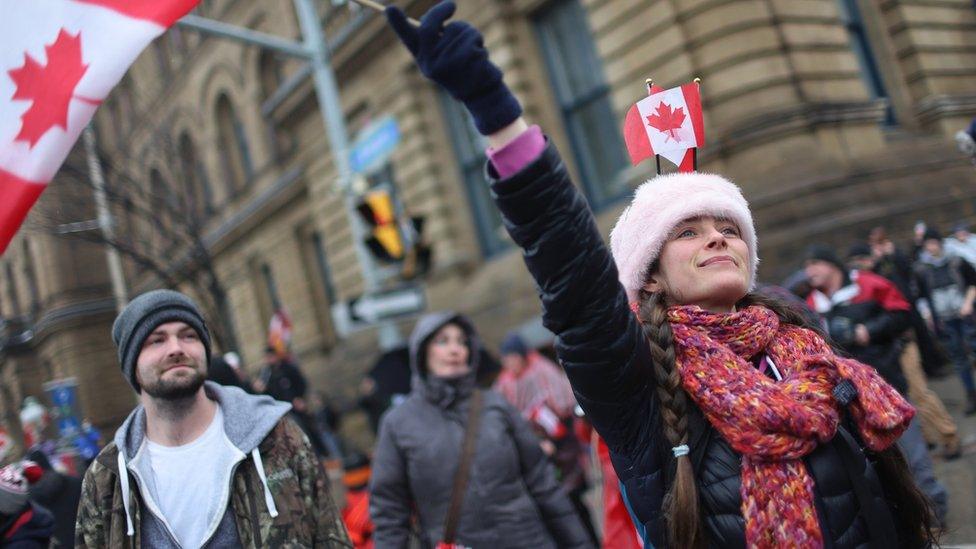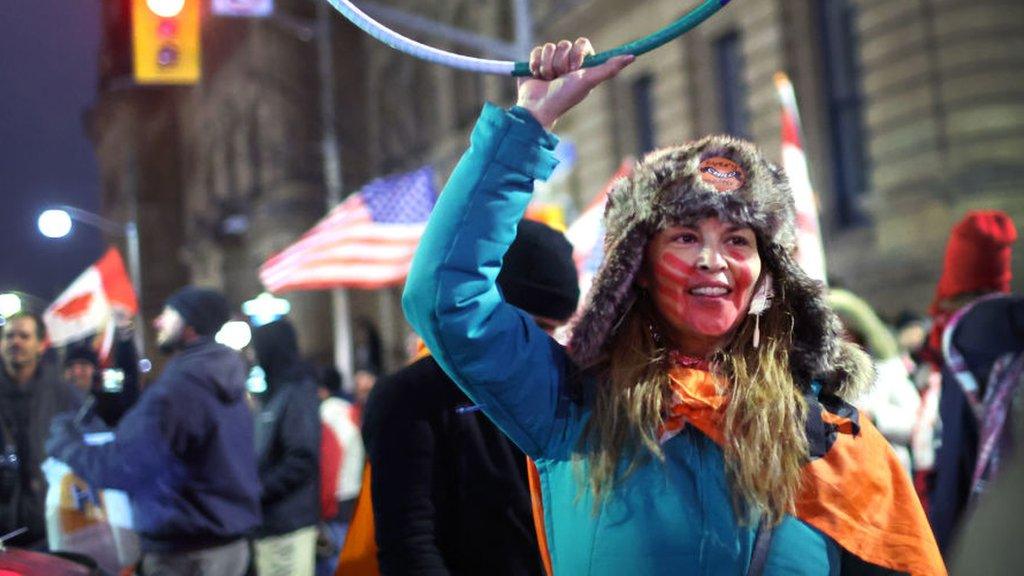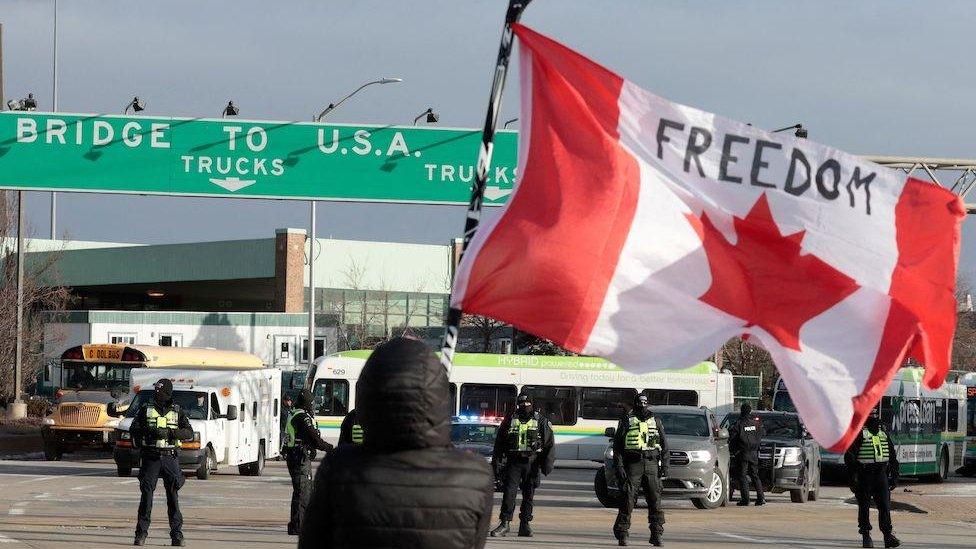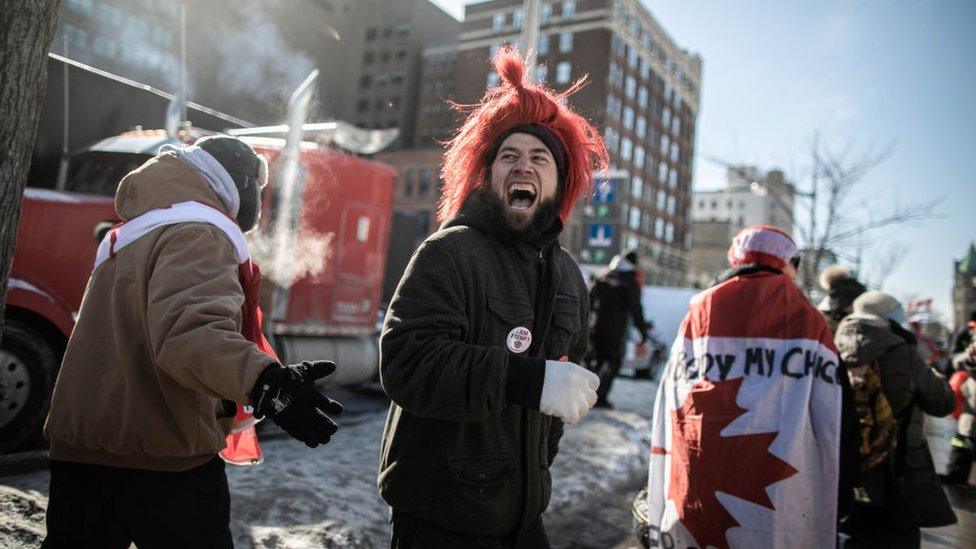Canada protests: Police arrest leaders of trucker convoy
- Published

The protests in Ottawa have been continuing for three weeks
Police in Ottawa have detained two leaders of the trucker convoy in the Canadian capital as they move to break up the last stronghold of the protests against the nation's Covid rules.
Tamara Lich was arrested on Thursday evening after Chris Barber was held, with both expected to be charged criminally, according to CBC News.
Authorities have already cleared other protests located at border crossings.
It comes days after Canada invoked an emergency law for the first time.
However, officers were not yet moving in force on the remaining demonstrators on Thursday night - although interim Ottawa Police Chief Steve Bell warned earlier that if "they do not peacefully leave, we have plans".
The Emergencies Act invoked by Prime Minister Justin Trudeau on Monday imposes bans on public assembly in some areas, among other measures.
The Ottawa demonstrators - many parked in some 400 heavy trucks and other vehicles on city streets around Parliament - have been warned they face arrest as well as having their trucks seized, their insurance suspended and bank accounts frozen.
Police say they are also working with child-welfare agencies to arrange how to remove the protesters' children from the site before authorities move in.
Ms Lich told the Canadian Press earlier that her personal bank account had already been frozen and she was resigned to going to jail.
Deputy Prime Minister Chrystia Freeland confirmed the government had begun freezing truckers' bank accounts.
"It is happening. I do have the numbers in front of me," she said.
Authorities last weekend cleared the most economically damaging blockade - of a bridge linking Windsor, Ontario, with the US state of Michigan. Trucker protests at other border crossings in Coutts, Alberta, and Emerson, Manitoba, ended this week.
Ottawa police have set up almost 100 police check-points around the main protest site, and a large business and residential district in the city centre.
The move comes ahead of the weekend, when a core group of protesters who remain during the week are typically joined by thousands of other demonstrators on the streets of the capital.
On Thursday, Prime Minister Trudeau defended his government's use of the Emergencies Act in the House of Commons, saying the protests threaten the national economy, public safety and US relations.
Opposition politicians accused Mr Trudeau of inflaming an already tense situation.
The use of the law is an "unprecedented sledgehammer", said Conservative leader Candice Bergen.
The Canadian Civil Liberties Association said on Thursday it would take the government to court over its "extreme measure".
The protests began with a truck convoy heading to Ottawa to oppose a vaccine mandate for truckers crossing the US-Canada border, but eventually became about a broader opposition to pandemic restrictions and Mr Trudeau's government.
Defenders of the "Freedom Convoy" are accusing Mr Trudeau of smearing their peaceful demonstration, while ignoring a violent attack by environmental activists elsewhere in the country on Thursday.
A group of 20 axe-wielding anti-pipeline protesters assailed security guards and police and caused extensive damage to property at a work site in Houston, British Columbia, said the Royal Canadian Mounted Police, external.
Related topics
- Published17 February 2022

- Published14 February 2022

- Published15 February 2022
